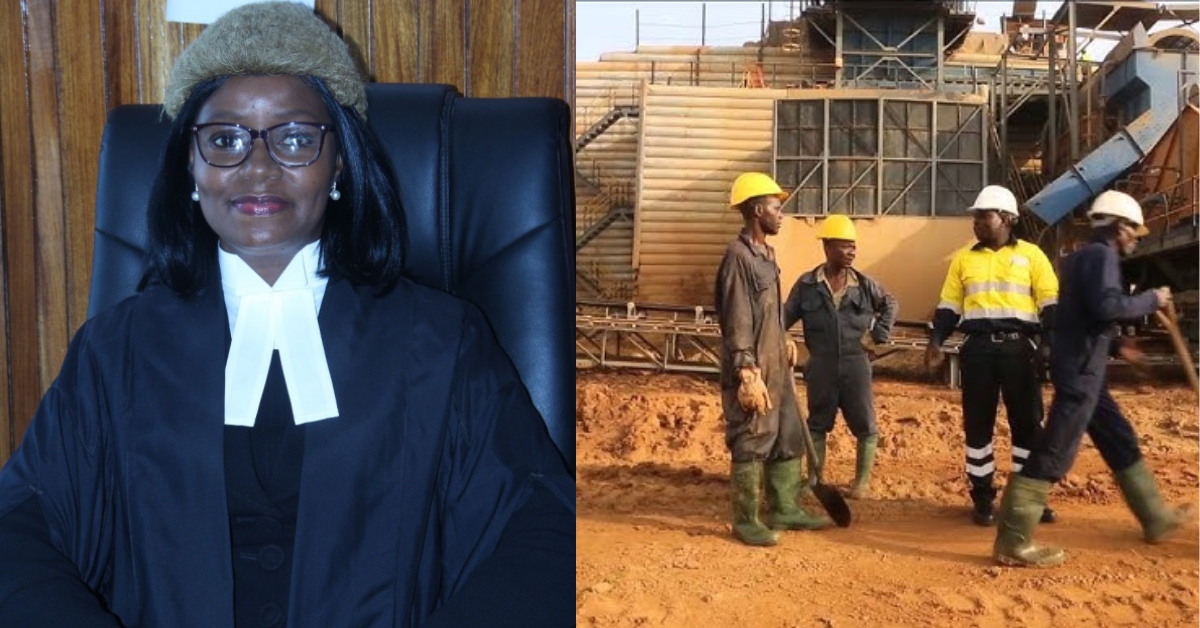In a landmark judgment delivered last Thursday, Justice Fatmatta Bintu Alhadi JA ruled in favor of Sierra Rutile Limited in the case of Thomas Sabbah vs. Sierra Rutile Limited.
The court dismissed claims by Thomas B.M. Sabbah for the recovery of $227,559.39 in alleged surface rent arrears for land in Imperri Chiefdom, Block IM/10A.
The dispute revolved around Sabbah’s claim of customary ownership of the land and an alleged lease agreement with Sierra Rutile dating back to 1985. Sabbah’s lawyer, Maurice Garber, argued that his client inherited the land through family ties and that Sierra Rutile had recognized this by making payments until they ceased. Garber contended that verbal agreements under customary law, supported by evidence of performance, were sufficient and accused the company of breaching contractual obligations in bad faith.
However, Sierra Rutile’s lawyer, Berthan Macaulay Jr., successfully refuted these claims. He argued that there was no valid lease agreement, citing the Provincial Lands Act and Mines and Minerals Act of 2009, which require written and authorized agreements for land transactions involving provincial land. Macaulay asserted that payments made to Sabbah were surface rents mandated by the Sierra Rutile Agreement Act of 1972 and administered through government channels, not evidence of a lease.
Macaulay also highlighted disputes over land ownership, referencing advice from the Paramount Chief and documentation showing the land was collectively owned by five families, with Sabbah’s family entitled to only a portion of the rent. He further argued that statutory laws governing mining concessions overrode customary claims.
Justice Alhadi’s ruling emphasized:
- Lack of Evidence for Lease Agreement: No valid or binding lease agreement between Sabbah and Sierra Rutile was proven.
- Statutory Law Supersedes Customary Law: The Mines and Minerals Act of 2009 and Sierra Rutile Act of 2002 placed authority over disputes with the Minister of Mines, rendering customary claims secondary.
- No Obligation for Surface Rent Payments: Block IM/10A fell within Sierra Rutile’s mining lease area, governed by statutory law, and the company was not obligated to pay Sabbah directly.
- Legal Occupancy: Sierra Rutile’s mining lease with the government, executed in 1984, gave the company lawful occupancy of the land.
- Weakened Claim: Sabbah’s lack of compliance with statutory requirements and insufficient documentary evidence undermined his case.
- No Standing to Challenge: Sabbah, not being a party to the mining lease, had no grounds to contest its validity.
The court ultimately ruled that Sierra Rutile was not liable for the alleged surface rent arrears.











